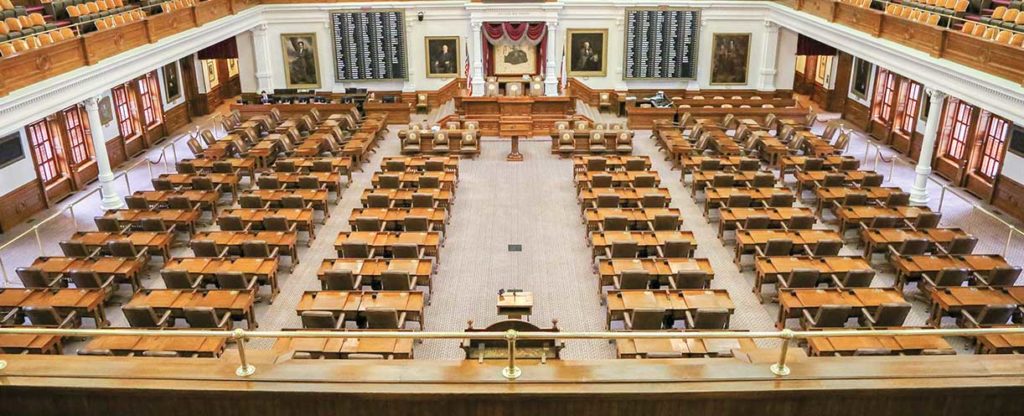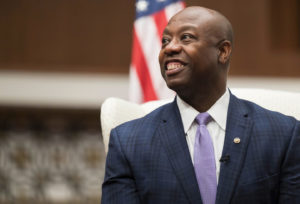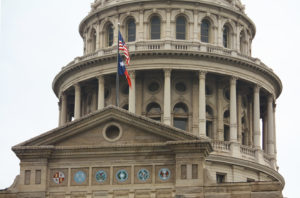Texas House Committee report previews special session on education
A legislative committee released recommendations for improving education in Texas in anticipation of special session on school choice.
The House Select Committee on Educational Opportunity and…

A legislative committee released recommendations for improving education in Texas in anticipation of special session on school choice.
The House Select Committee on Educational Opportunity and Enrichment was commissioned in June and comprises 15 members – 10 Republican and 5 Democrat.
“[The committee will] consider issues that broadly affect educational opportunities for K-12 students in Texas,” said House Speaker Dade Phelan, R-District 21, who announced the new committee.
“With a special session all but certain,” Phelan continued, referring to Gov. Greg Abbot’s plan for a special session on school choice legislation, “the select committee will begin working immediately to closely examine this subject matter and develop a workable roadmap for legislation in the House.”
The committee addressed a myriad of topics ranging from school choice to teacher retention to school funding formulas that weren’t fully addressed during the regular legislative session.
The House committee received nearly 3,000 written comments and heard 17 more hours of other comments, including testimonies from public school officials, charter school leaders, and school choice advocates.
Among voters, school choice remains popular in Texas, and around the nation.
“Based on all the evidence and polling, it’s clear that choice for all is in the best interest of students, families, and taxpayers,” Robert Enlow, president and CEO of EdChoice, told The Lion.
“The data on the impact of school choice policies overwhelmingly find that these programs lead to higher test scores for participating students as well as those who remain in public schools; increased parent satisfaction; safer schools; and greater civic engagement,” he continued.
Enlow also testified to the Texas House committee on the 187 studies showing the positive impact of school choice programs, he said.
In its final report, the committee emphasized the need for public school choice, such as through policies allowing students to transfer within districts and between them.
Members also recommended that potential future school choice programs prioritize “high need” students and said tax credit programs are “worthy of consideration.”
Mandy Drogin, an education reformer and campaign director for Texas Public Policy Foundation, called the report a “great first step.”
“This report provides a very basic roadmap of some of the things that we will likely see brought up during the special session,” Drogin told The Lion, saying the report reflected the “common understanding that we all have that we really need to be investing in students.
“We need to be listening to the most important people in a child’s life that affect their education, which is teachers and their parents. When you listen to teachers and parents, we know that the results for kids are just significantly better.”
In her personal comment on the report, Rep. Barbara Gervin-Hawkins, D-District 120, emphasized accountability and suggested using a pilot program with a sunset date to determine whether school choice was effective at improving student outcomes.
Other important topics in the report were early literacy, parental engagement, and chronic absenteeism.
One democratic representative outright refused to sign her name to the report.
Rep. Gina Hinojosa, D-District 49, a former Austin school board president, accused the committee of neglecting special education students by prioritizing “high need” students in potential school choice programs.
“Texas must not wash its hands of our Special Education students because they are more challenging and more expensive to educate,” she wrote in the comment section of the report. “We take up the challenge and meet our obligations because Texas children and families are counting on us to do what is right.”
Hinojosa also opposed education savings accounts (ESAs) regardless of who they prioritized.
Several school choice bills – proposing both tax credits and ESAs – have died in the Texas legislature this year.
However, Gov. Abbott has been a staunch supporter of education freedom and is expected to call a special session on the subject in the fall.
He’s also criticized water-downed school choice bills that would have “provide[d] less funding for special education students” and “low-income families.”
“Parents and their children deserve the time and effort this will take,” Abbott said in May.
“We have never seen a governor that has been so passionate to stand up for parents and teachers for the kids,” said Drogin. “That’s been incredibly encouraging.”



